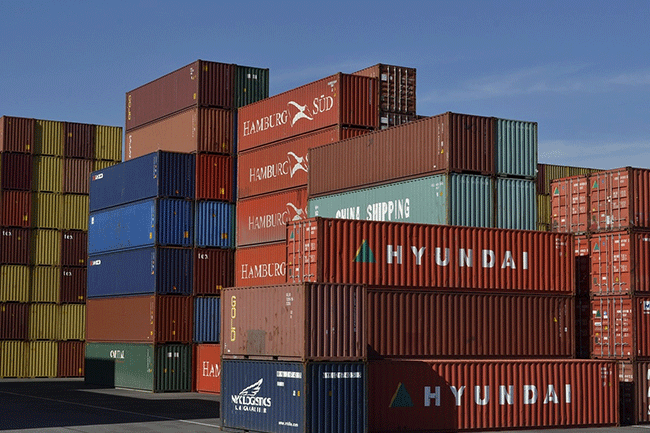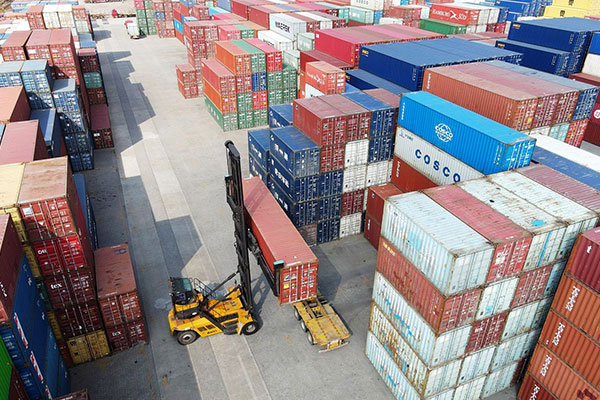- Shanghai Zhongshen International Trading Co., Ltd. – Your reliable partner with 20 years of import/export agency service expertise.

Introduction: The journey of importing Japanese juice beginsforeign tradejourney begins
In today's globalized market environment, juice imported from Japan is becoming increasingly popular in the international market due to its unique flavor and quality. For enterprises interested in the Japanese juice import business, a clear understanding of the foreign trade process and how to deal with various challenges is crucial.Zhong Shen International Trade Co., Ltd.As a professional foreign trade agency, we are committed to providing clients with comprehensive and professional import process services.
Opportunities and Challenges of Importing Japanese Juice in the Context of International Trade
?Opportunities?
With the growing global consumer demand for healthy drinks, Japanese juice, with its strict production standards and diverse flavors, has catered to this trend. At the same time, the continuous advancement of international trade agreements, such as some regional trade agreements, has lowered tariff barriers for Japanese juice to enter different markets and expanded market space. In addition, the rise of online sales channels has made it more convenient for Japanese imported juice to reach global consumers, further broadening the sales scope.
Challenges
However, the current international trade situation also faces many challenges. The rise of trade protectionism has led some countries to introduce additional tariff or non-tariff barriers, increasing import costs and uncertainty. Exchange rate fluctuations are also a major problem, as they affect the cost accounting and profit margins of imported juice. At the same time, the regulations and standards for food imports vary greatly from country to country, which requires importers to have a deep understanding and strict compliance, otherwise they may face the risk of products being unable to clear customs or being recalled.
Document Handling: The Key Link in Importing Japanese Juice
Commercial Invoice
The commercial invoice is one of the most basic documents in the import business. It details information such as the description, quantity, and value of the goods. When importing Japanese juice, the commercial invoice must be accurate, including the brand, flavor, specifications, unit price, and total price of the juice. The information on the invoice should be consistent with the contract terms and other documents to avoid problems during customs clearance.
Bill of Lading
The bill of lading is an important document for the transport of goods, as it represents the ownership of the goods. When importing Japanese juice, it is necessary to ensure that the shipper, consignee, and notify party information on the bill of lading is accurate, and that the goods description is consistent with the actual goods. For aMaritime transportbill of lading, attention should also be paid to the type of bill of lading, such as a Clean Bill of Lading, which is an important condition for ensuring the smooth delivery of the goods. If there are adverse remarks on the bill of lading, it may affect the delivery of the goods and the bank'sConvert foreign exchange into RMB.
Packing List
The packing list details the packaging of the goods, including the number of boxes, the quantity, weight, and volume of each box. The importer needs to carefully check the packing list to ensure it is consistent with the actual goods. Especially for liquid products like juice, attention should be paid to the safety and integrity of the packaging to prevent leakage during transport.
Origin CertificateImport License (if required)
The certificate of origin proves the country of origin of the goods and is crucial for enjoying preferential tariff treatment. When importing Japanese juice, obtaining a valid certificate of origin can reduce import tariff costs if the relevant trade agreement requirements are met. For example, if Japan has signed a free trade agreement with the importing country, juice products that comply with the rules of origin can enjoy lower tariff rates.
Health Certificate
Since juice is a food product, a health certificate is an essential document. This certificate is issued by the official inspection and quarantine agency in Japan and proves that the juice complies with relevant hygiene standards and food safety requirements. The importer should ensure the authenticity and validity of the health certificate, and that the information on the certificate is consistent with the actual goods.
Logistics Arrangement: Ensuring Safe and Efficient Transport of Japanese Juice
Selection of transportation methods
Maritime transport
Sea freight is a more commonly used mode of transport for importing Japanese juice, suitable for large-volume shipments. When choosing sea freight, factors such as the shipping schedule, the reputation of the shipping company, and the transport route should be considered. For example, from Japan to Southeast Asia, there are usually more frequent routes, and the transport time is relatively stable. However, for some refrigerated juice products, it is necessary to ensure that the vessel has good refrigeration equipment to guarantee the quality of the juice during transport.
Air freight
If the quantity of goods is small or the time requirement is high, air freight is a good choice. Air freight is fast and can quickly deliver Japanese juice to the destination market. However, air freight costs are relatively high, and the importer needs to comprehensively consider the cost and timeliness factors. At the same time, for air-freighted juice products, attention should be paid to the pressure resistance and safety of the packaging to adapt to the bumps during air transport.
Warehouse Management
After the goods arrive at the destination port, warehousing may be required. For imported Japanese juice, especially refrigerated juice, it is necessary to choose a warehouse with appropriate storage conditions. The warehouse should have good temperature and humidity control equipment to ensure the quality of the juice is not affected. In addition, warehousing time should be reasonably arranged to avoid increased costs due to prolonged storage.
Transportation Insurance
To reduce risks during transport, purchasing transport insurance is very necessary. The importer can choose appropriate insurance clauses based on the value of the goods and the mode of transport. For example, for sea freight, you can choose Free from Particular Average (FPA), With Average (WA), or All Risks. The insurance clauses should cover various risks that may be encountered during the transport of the goods, such as natural disasters and accidents.
Southeast Asian Market: Japanese Imported JuiceImport and exportProcess and Solution
Import Process
Sign the Contract
The importer signs a detailed import contract with the Japanese supplier, clarifying the rights and obligations of both parties, including the specifications, quantity, price, delivery date, and payment method of the goods. The contract is the basis of the entire import business and should ensure that the terms are clear and specific to avoid future disputes.
Apply for an import license
Some Southeast Asian countries have strict controls on food imports, requiring importers to apply for an import license in advance. The importer should understand the local regulations and application process and prepare the relevant application materials, such as the commercial invoice, packing list, and certificate of origin. The application process may take some time, so the importer should plan in advance to avoid affecting the import of the goods.
Customs Declaration and Inspection
After the goods arrive at the destination port, the importer needs to entrust a professional customs broker for customs declaration and inspection. The customs broker will declare the goods' information to customs based on the provided documents and pay the corresponding customs duties and value-added tax. At the same time, the goods need to be inspected by the inspection and quarantine agency to ensure they comply with local food safety standards. For imported Japanese juice, a label review may be required to ensure the label content complies with local regulations.
Goods Pick - up and Release
After completing the customs declaration and inspection procedures and paying the relevant taxes, the importer can pick up the goods at the dock or warehouse with the delivery order. When picking up the goods, carefully check the quantity and quality of the goods. If there are any problems, communicate and resolve them with the supplier or transport company in a timely manner.
Solution
China has extensive experience in handling Japanese juice import business in the Southeast Asian market. We can assist importers in reviewing contract terms to ensure their interests are protected. In the import license application stage, we are familiar with local regulations and application procedures and can help importers quickly and accurately prepare application materials, improving application efficiency. In customs declaration and inspection, we maintain good cooperative relationships with professional customs brokers and inspection and quarantine agencies to ensure smooth customs clearance of the goods.
Russian Market: Advantages and Procedures of VTB Foreign Exchange Settlement
VTB Settlement Advantages
In trade with Russia, China has a VTB settlement convenience for the Russian market. VTB Bank is one of the important financial institutions in Russia. Through cooperation with VTB, we can provide clients with more convenient and efficient settlement services. Compared to other bank channels, VTB settlement is simpler in terms of procedures and faster in speed, which can effectively reduce the client's capital occupation costs. At the same time, VTB's extensive network in Russia also provides more convenience for trade settlement.
Foreign exchange settlement process
When importing Japanese juice and settling with Russian clients, first, the importer and the Russian client agree in the contract to use VTB Bank as the settlement bank. After the goods are delivered, the Russian client will pay the funds to the designated VTB bank account. China assists the importer in preparing the relevant settlement documents, such as the commercial invoice, bill of lading, and packing list, and submits them to VTB Bank. After VTB Bank verifies the documents, it will convert the foreign exchange into RMB at the day's exchange rate and pay the funds to the importer. The entire settlement process is relatively standardized and fast, which can ensure the timely recovery of the importer's funds.
Product Certification Assistance: A Safeguard for Imported Japanese Juice
Although China does not directly provide certification services, we will inform clients of the required certifications and assist them in handling them. For imported Japanese juice, different markets may have different certification requirements. For example, in the EU market, juice products may need to comply with the EU's food regulations and related certification standards, such as BRC (British Retail Consortium) certification. In the Southeast Asian market, some countries may require juice products to pass local food safety certification. We will provide clients with detailed certification information and application process guidance based on the requirements of different markets and assist them in preparing the relevant application materials to ensure they can successfully complete the certification work and that their products meet market access requirements.
Conclusion: Working Together to Embark on a New Journey of Japanese Juice Foreign Trade
Importing Japanese juice involves multiple complex links, from document handling and logistics arrangements to responding to the regulatory requirements and settlement processes of different markets. Each step requires professional knowledge and experience. China, with its deep accumulation in the importExport Agent Servicesservice field, especially its professional capabilities in document handling and logistics services, as well as its unique advantages for specific markets, can provide importers with comprehensive support and assurance. In the current complex and ever-changing international trade situation, we will work together with importers to seize opportunities, respond to challenges, and embark on a new journey of Japanese juice foreign trade.
? 2025. All Rights Reserved.










